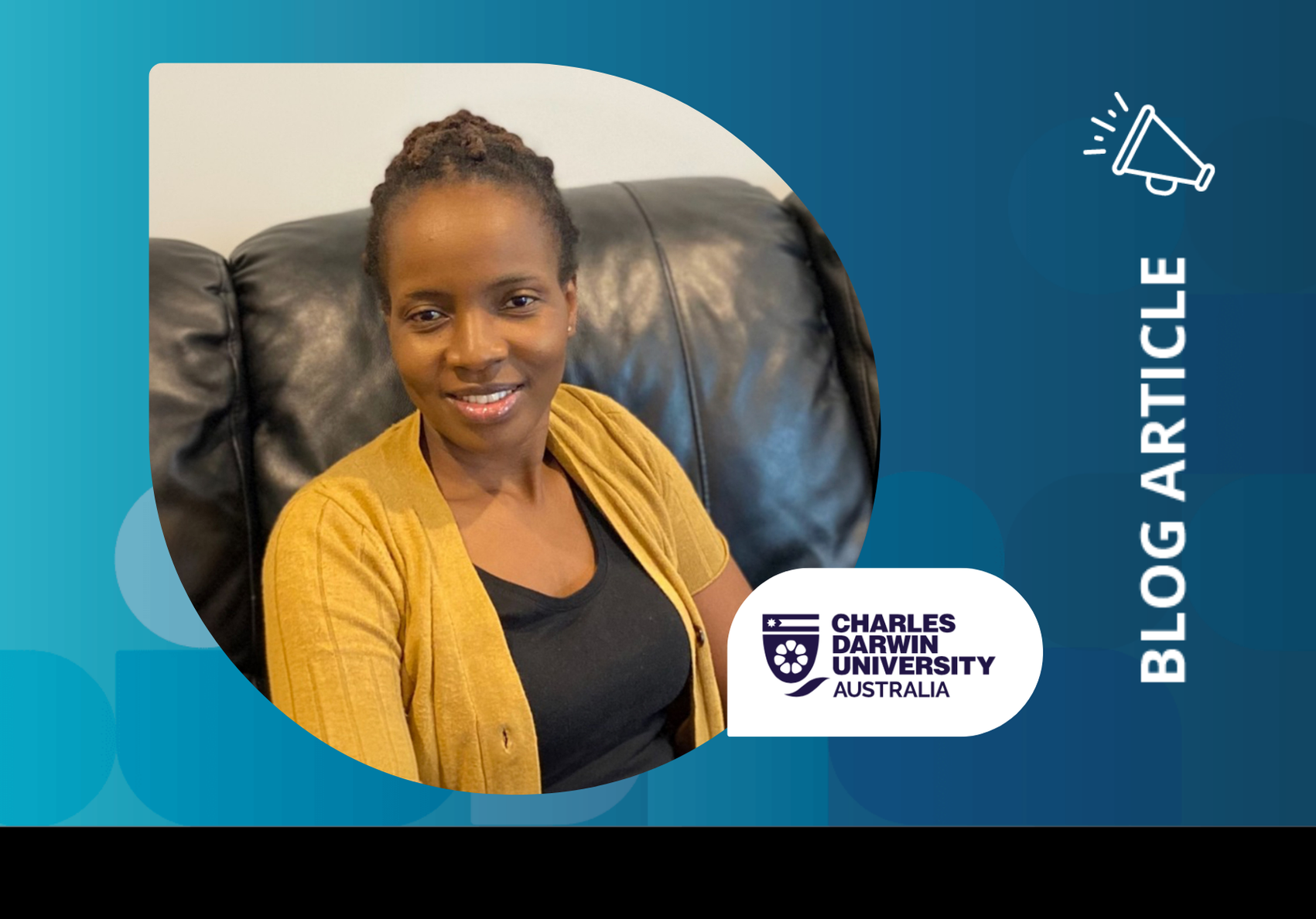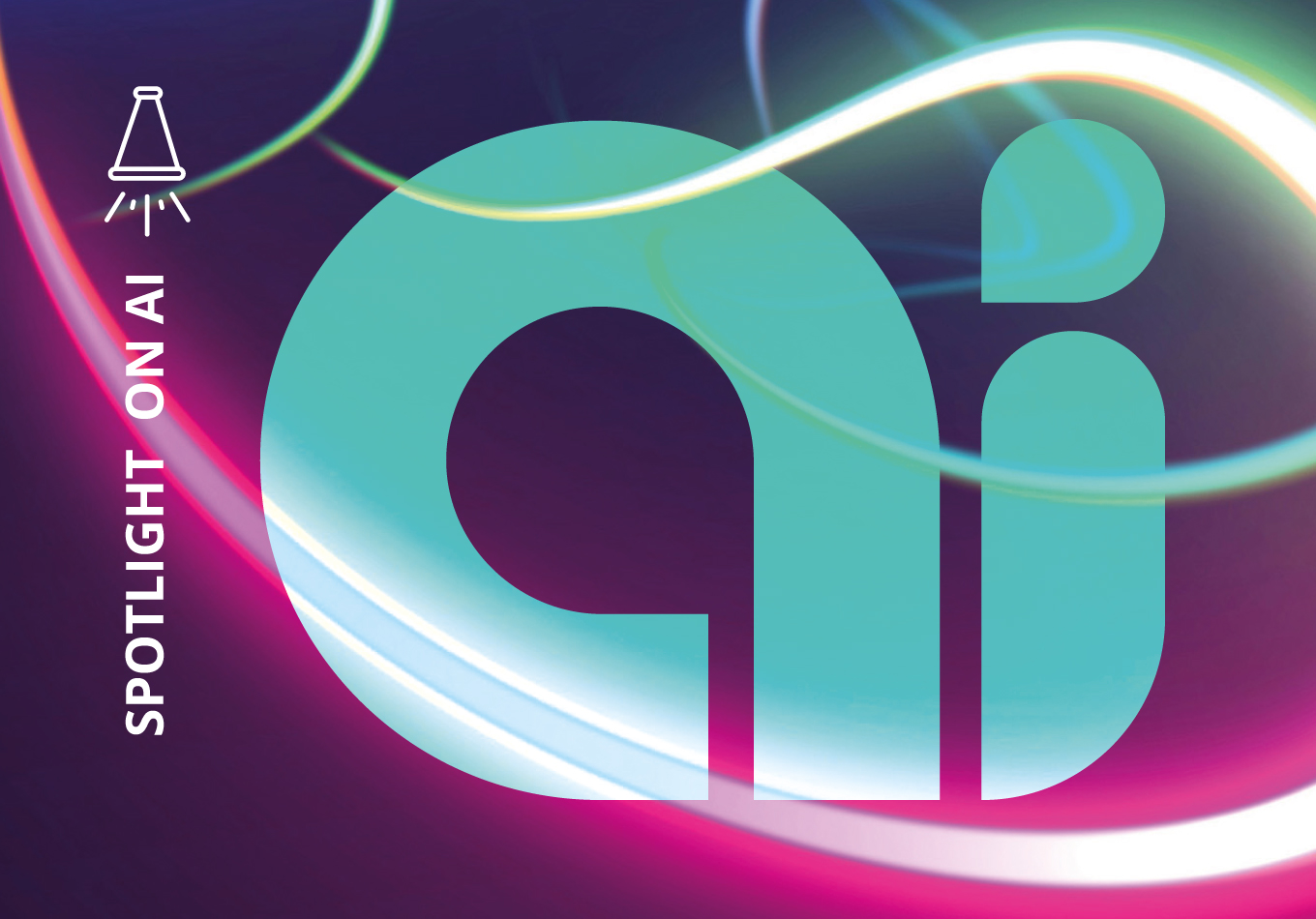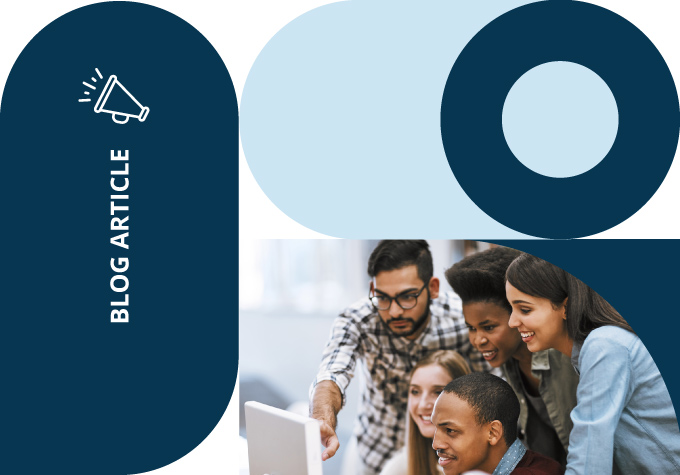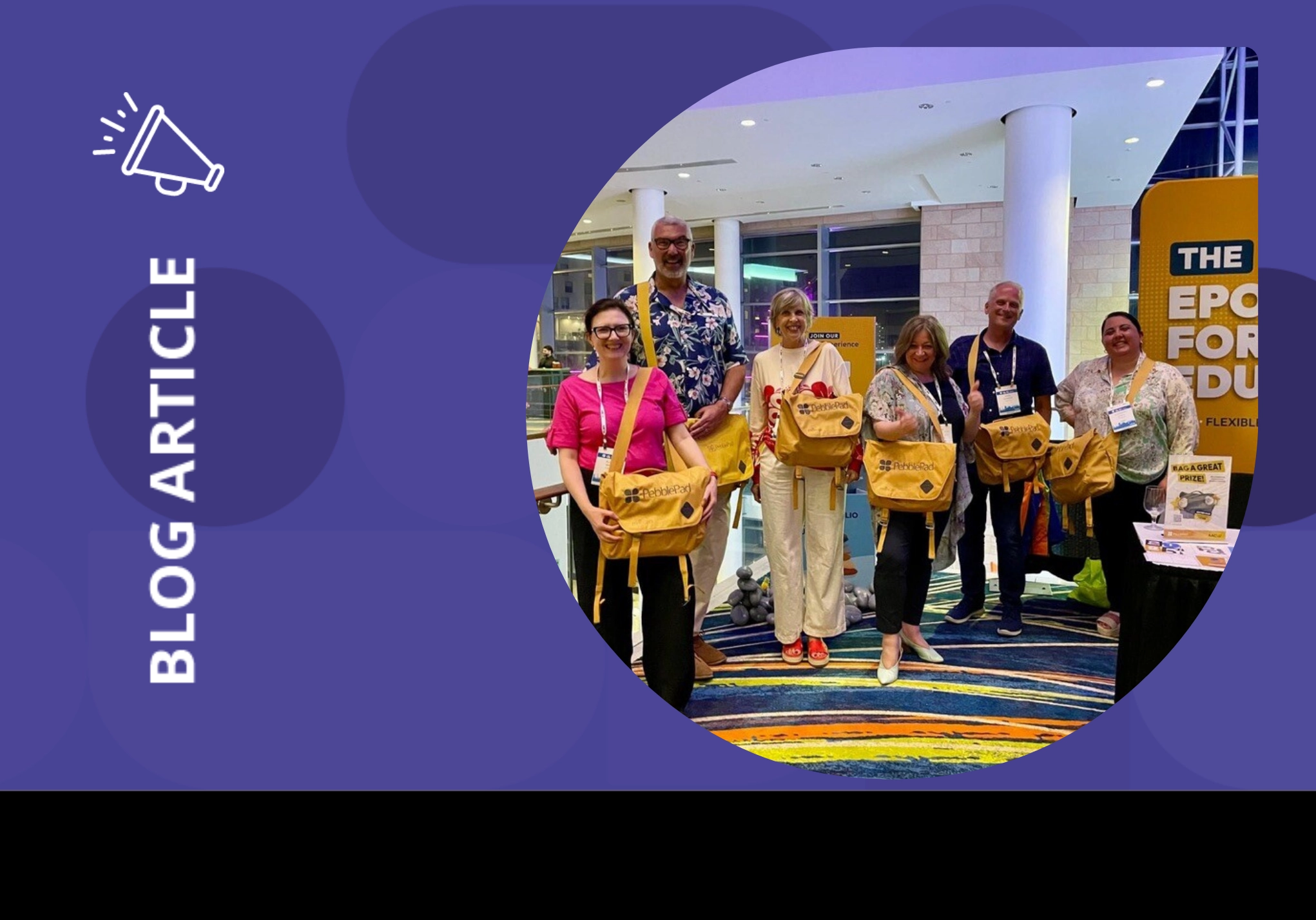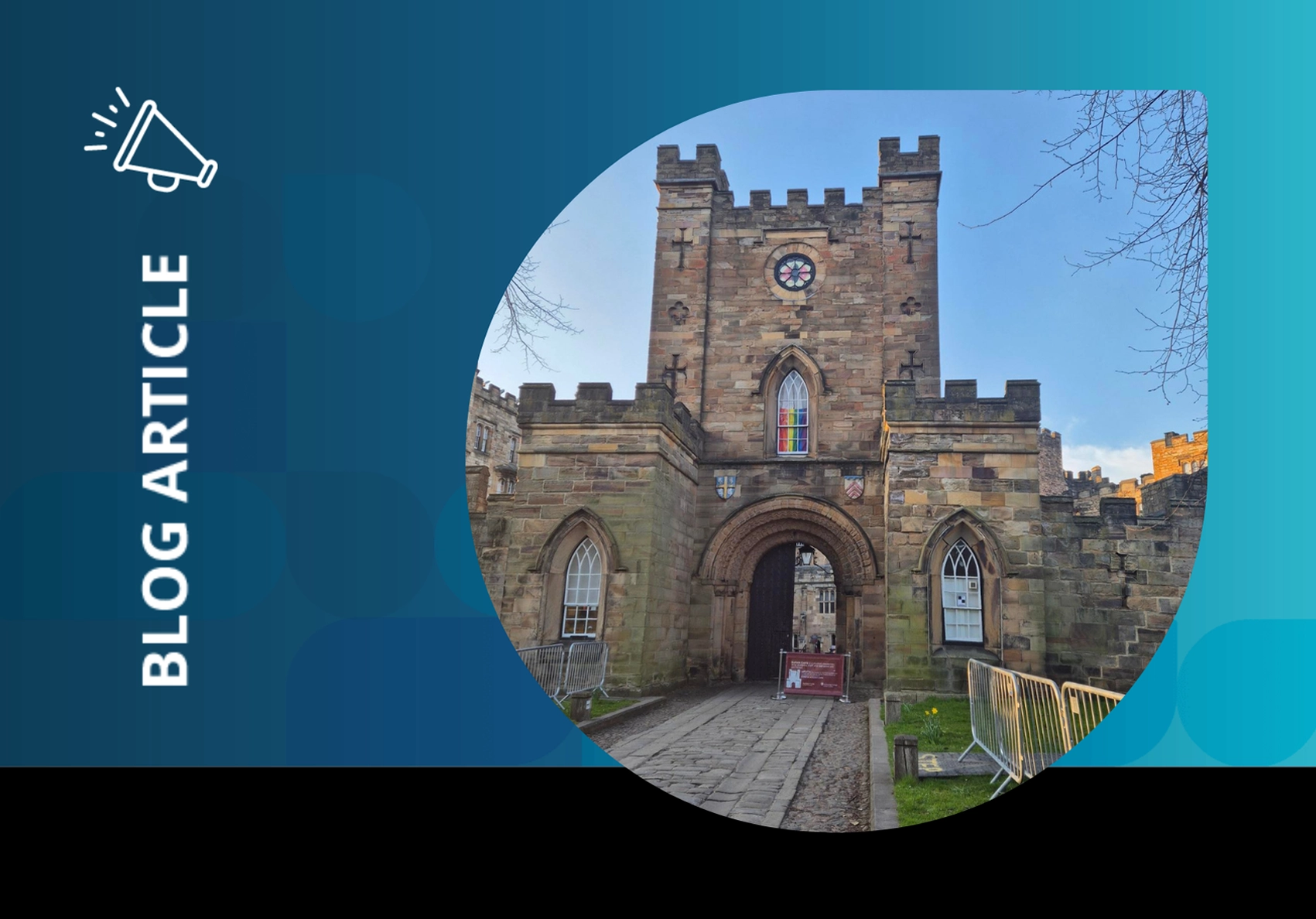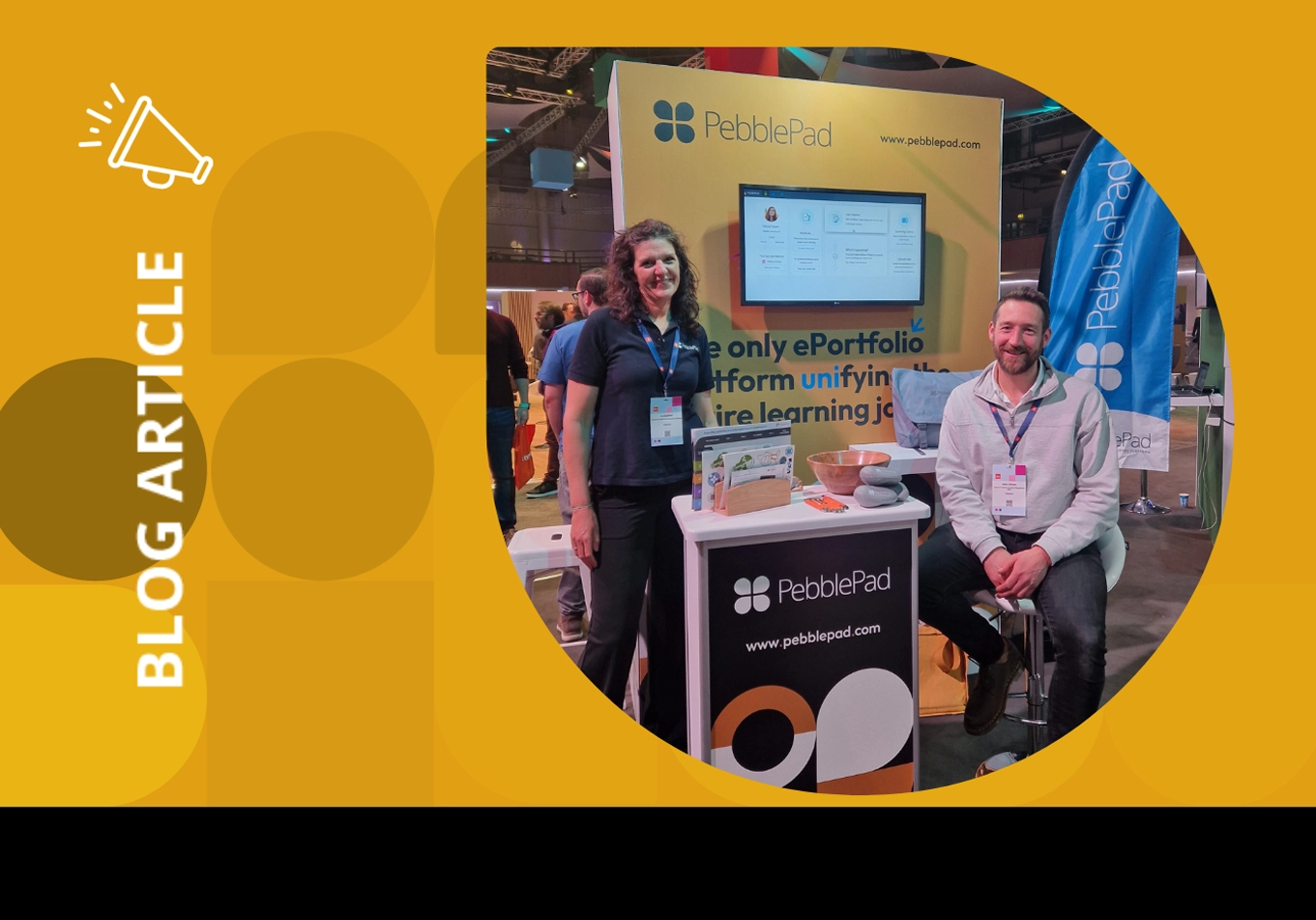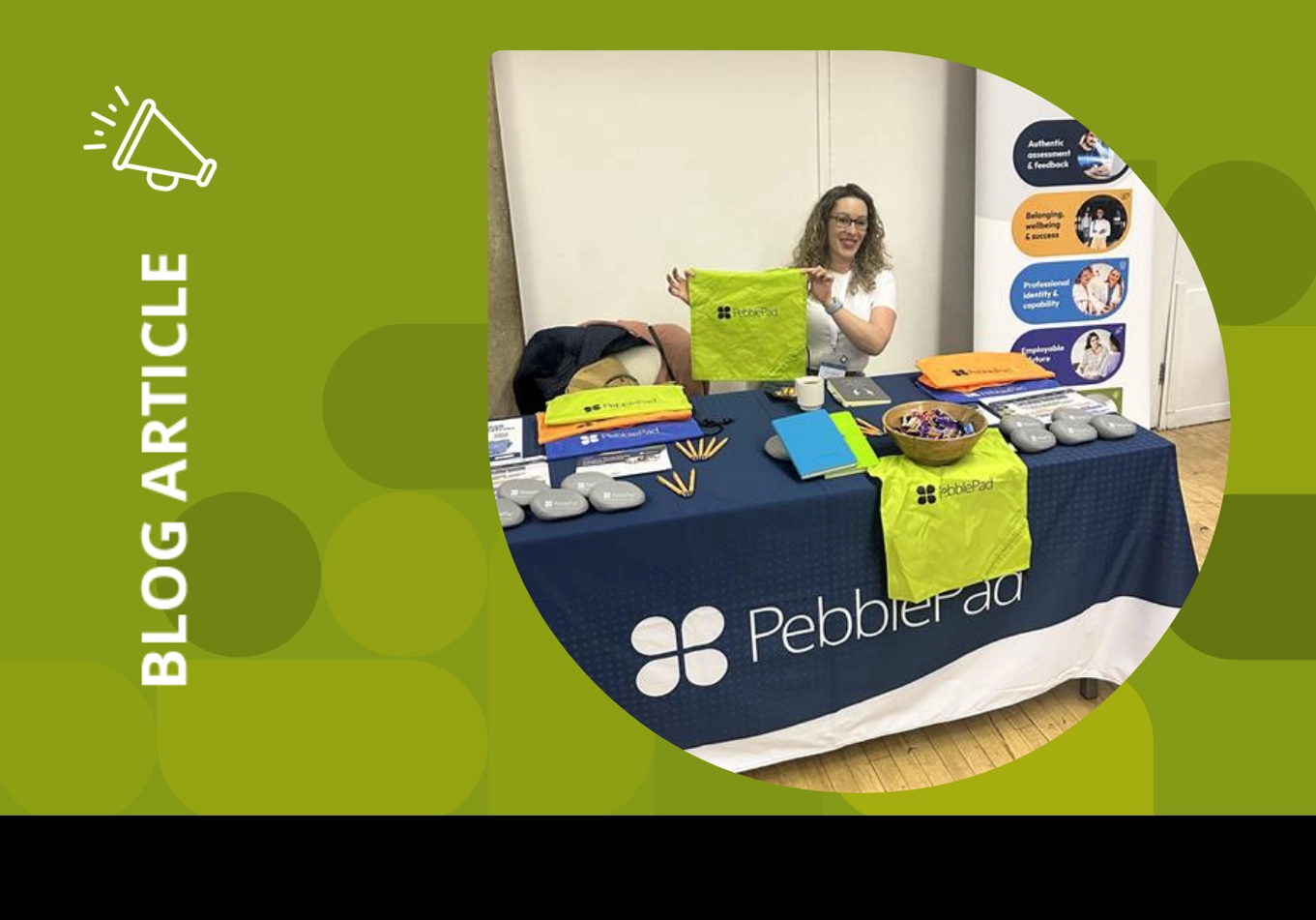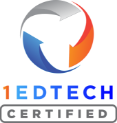PebblePad has been a serial attendee at ALTC over the last 17 years, but ALTC22 was a first for me. Attending ALTC two months into my new role as Marketing Director was the perfect event to meet customers and colleagues and get under the skin of the challenges facing learning technologists in the UK and beyond (20 other countries attended).
The awards shed light on the best practice from universities such as Glasgow, Falmouth and Leeds. We’ve booked up for ALTC23 next year and are excited about the discussions to come, but first, a look back at what was an insightful and inspiring conference with plenty of robust discussions around learning technologies and best practise in learning design.
Based on the stories I heard at our Demo Pod and in the sessions I attended, here are my thoughts on the issues keeping learning technologists up at night. If any of the following sessions pique your interest, resources will be available on the ALTC website and YouTube channel in early October.
1. How can Learning Technologists bring academic colleagues with them?
Challenge: Finding a common language and approach to ensure that ‘Academics’ and ‘central business support’ departments are fully on board.
I found Simon Thomson’s session outlining his SPaM framework – Subject, Pedagogy and Modality – very useful for supporting the development of hybrid and blended education (also nice beer mats!). As Simon points out, it’s very important to find clarity and common language: “If you say ‘blended to one person, you mean ‘hybrid’ to another.” (A concept we’re very much familiar with – did I hear someone ask ‘what does ‘eportfolio’ mean to you?’). The framework provides a way ‘in’ for academics to start their conversations with learning technologists and designers from their place of passion.
Key Take Away – Academics are passionate about their subject first.
2. How to ensure students get the best possible learning experience?
Challenge: The constantly shifting landscape of educational technology can prove challenging for staff trying to deliver the best student experience.
University of Glasgow (also an award winner) presented their well-planned research process which included assessing digital capabilities of both educators and students. They had a nice ‘we asked – you answered’ approach with a needs analysis survey, and I liked how they were careful to position their ‘Upskilling Development Calendar’ as academic CPD, and providing deeper contextual understanding for colleagues. Having processes for upskilling and enabling staff to maximise partnerships creates a solid foundation for the creation of meaningful learning experiences in the digital space..
3. How to make technology decisions when juggling several ethical perspectives?
Key takeaway – “You can’t outsource your ethics.”
What happens when you choose the right provider (based on one set up of ethics) only to find the ethics department takes a completely different view? Melissa Highton and Stuart Nicol’s talk, ‘Fables, fairy tales & the complex worlds of learning technology ethics’ shared important insights on navigating competing ethics in a large institution. Melissa highlighted that risk, reputation & ethics must be owned by the institution. And it was fascinating to see the exploration of how folk tales and the power of story could be of use in discussions around ethics and technology.
4. How does the FELT Framework help navigate technology and ethics at an institution-wide level?
Melissa and Simon’s presentation highlighted the need for learning technologists to strengthen their representation at an institution-wide level. The pivot saw ‘learning technology’ adopted on a larger scale than ever before. In his keynote, Ethics and Educational Technology, Rob Farrow outlined the FELT Framework and raised the question: Can this framework help learning technologists take a more central/leading role in the ethical, equitable and fair use of technology on an institution-wide basis?
Our own learning consultant, Neil McKeown addresses some of the issues posed in Rob Farrow’s presentation and highlights the need for an evolving approach combining reflections from the personal (practitioners, educators and student users of technology) and institutional level. This fabulous sketch note of the keynote, by James Clay, also provides some insight into the issues covered.
5. How to become digital by default?
Challenge: Creating a new high performing team to respond to the Universities 2030 strategy.
University of Greenwich’s 2030 strategy includes becoming digital by default and the new Digital Pedagogy Team took us through the steps of forming a team to get there in their presentation: Forming, Storming, Norming (Performing?) – a new team’s response to a centralised model combining digital pedagogy with learning technology.
A key takeaway was ‘working out who we aren’t, is as important as who we are’ – as the group identified challenges around identity and purpose. They had to flip Julie Voce’s ‘centralised with separate local teams’ model, as they jettisoned local teams to create the new central team.
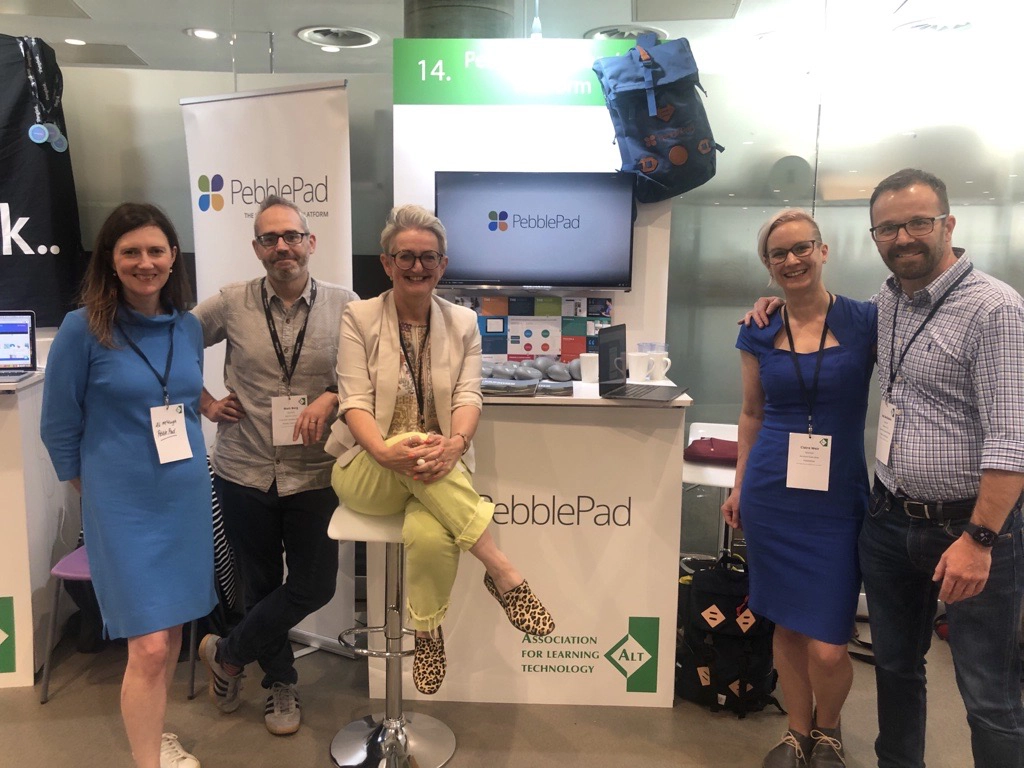
6. How to make students true partners?
Challenge: Ensuring that students have the opportunity to provide their insights into teaching and learning.
It was great to hear the student voice from Imperial College London, in their talk: “Student partnerships within a multidisciplinary team to enhance digital learning resources in medical education”. Medical students presented to the conference on their partnership work with their Digital Development Group. The students expressed how they felt valued and listened to as they observed the changes made by the Medical School in response to their contributions. This collaborative approach helps with ongoing motivation. The staff reflected that the student partnerships were beneficial to both students and staff, making some digital practices more engaging and effective.
7. How to take all the lovely SWAG from ALTC home?
We could think of no better way than in a much-coveted Millican rucksack. The PebblePad competition to win the luxury PebblePad bag was won by Cat Bazela.
Final reflection
Learning technologists are smart, friendly (ALTC is a fun event) and dedicated to continuously improving the learning experience for students. Listening to the presentations, it’s clear the strongest thread (whether in a faculty or central department) pulling them together is the shared purpose to put student-centred learning and best practice pedagogy (whether online, blended or hybrid) first.
Perhaps the biggest challenge of all is self-promotion. How to ensure the ‘learning technology’ perspective putting students’ learning and outcomes first is heard when institutions build and set out institution-wide initiatives and their ‘digital by default’ strategy. With that in mind I’ve very much looking forward to next year’s conference to learn about how learning technologists are leading the conversation on Institutions’ ambitions to improve student equity & experience, future readiness, academic integrity in assessment, managing need for pedagogical flexibility and professional accreditation.



